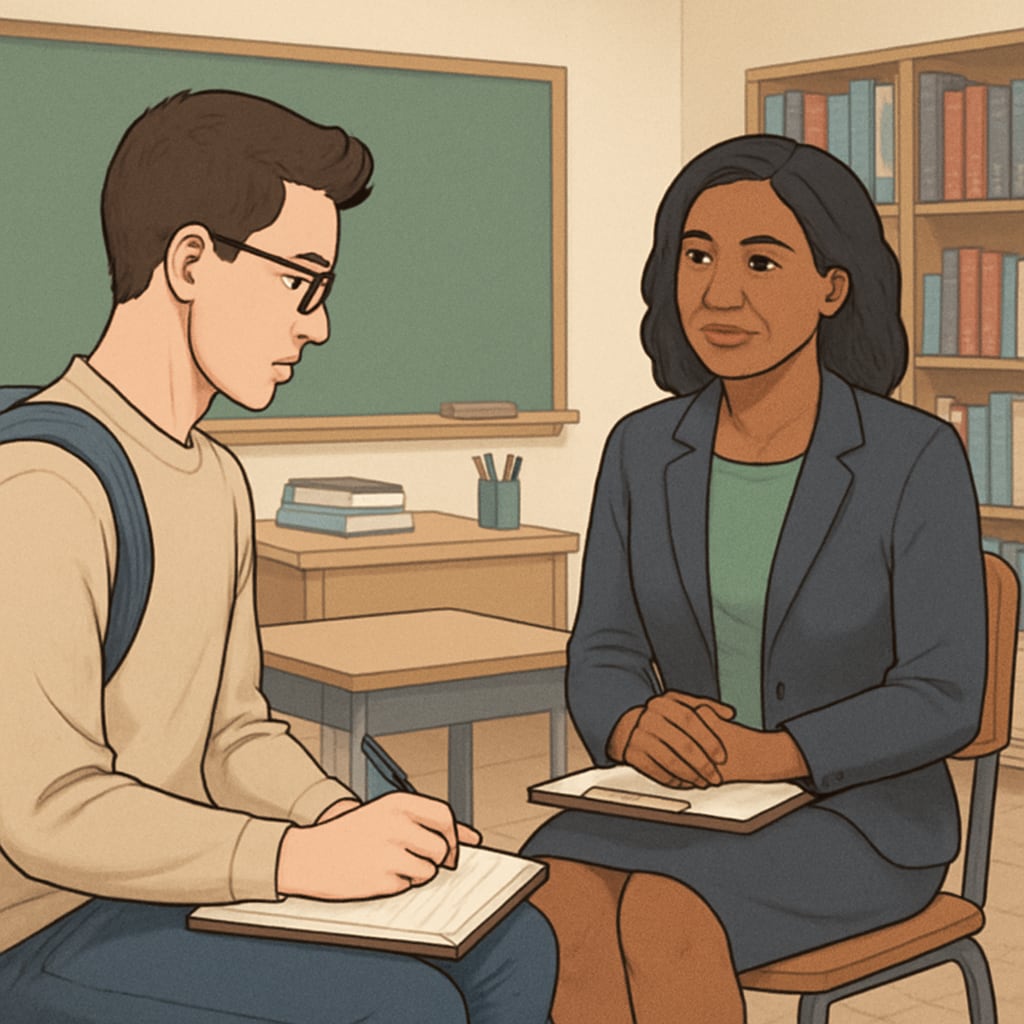Graduate students in counseling programs often encounter the task of conducting school counselor interviews as part of their academic assignments. These interviews are not just a requirement but serve as a crucial bridge between theory and practice, allowing students to gain insights into real-world applications of counseling strategies. However, navigating this process can present unique challenges, from identifying suitable interviewees to effectively utilizing the information gathered. This article delves into these obstacles, underscores the importance of such interviews in professional development, and provides actionable strategies to help students succeed.
Understanding the Role of School Counselor Interviews in Academic and Professional Growth
School counselor interviews offer graduate students the opportunity to understand the practical aspects of counseling within an educational setting. These conversations can illuminate how theories learned in the classroom are applied in real-life scenarios, helping students refine their approaches. Moreover, interviews can foster essential networking connections, which may prove valuable for future career opportunities.
For example, during an interview, a student might learn how counselors address issues like bullying, academic pressure, or mental health concerns. These insights provide a deeper understanding of the challenges counselors face and the innovative methods they employ to support students and educators alike.

Challenges in Conducting School Counselor Interviews
Despite the benefits, graduate students may face several hurdles when undertaking school counselor interviews. These include:
- Finding willing participants: Many counselors have busy schedules, making it difficult to secure their time.
- Crafting effective questions: Students may struggle with designing questions that elicit meaningful responses.
- Overcoming nervousness: Interview anxiety can hinder communication and reduce the quality of insights gathered.
Understanding these challenges is the first step to overcoming them. With preparation and persistence, students can navigate these obstacles effectively.
Practical Strategies for Successful School Counselor Interviews
To optimize the interview process, students can adopt the following strategies:
- Research and preparation: Familiarize yourself with the school counselor’s role and responsibilities before the interview. This helps in designing informed and purposeful questions.
- Leverage professional networks: Reach out to professors, classmates, or alumni for recommendations on potential interview candidates.
- Use a structured format: Organize your interview with a clear beginning, middle, and end to ensure all key topics are covered.
- Practice active listening: Focus on the counselor’s responses and ask follow-up questions to delve deeper into their perspectives.
By implementing these strategies, students can enhance the quality of their interviews and gain valuable insights into the field of school counseling.

Building a Professional Network Through Interviews
Conducting interviews is not just an academic exercise; it is a stepping stone to building a professional network. Counselors interviewed during assignments may become mentors or references in the future. To leave a positive impression, students should:
- Express genuine appreciation for the counselor’s time and insights.
- Share a brief summary of their academic goals and interest in the counseling field.
- Follow up with a thank-you note, highlighting key takeaways from the conversation.
These small but impactful actions can help establish meaningful connections that extend beyond the scope of the assignment.
Conclusion: Elevating Academic and Professional Success
School counselor interviews are a pivotal component of graduate counseling programs, offering students a chance to bridge theoretical knowledge with practical applications. By addressing challenges head-on and employing effective strategies, students can not only excel in their academic tasks but also lay the groundwork for a successful career in counseling. Approaching these interviews with preparation, professionalism, and curiosity will ensure that both academic and professional goals are achieved.
Readability guidance: The article uses concise paragraphs, clear headings, and structured lists to improve readability. Transition words such as “however,” “for example,” and “as a result” are evenly distributed to maintain flow and coherence.


